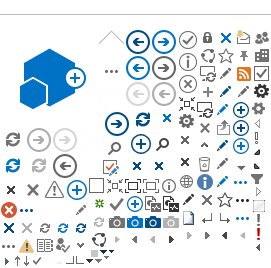By: Tiffany Adams
Aimed at fulfilling the Nuclear Energy University Program's (NEUP) mission of engaging the U.S. academic community and building world-class nuclear energy and workforce capability, the Consolidated Innovative Nuclear Research (CINR) awards provide funding to research and develop creative solutions for problems facing nuclear energy. A part of the Department of Energy Office of Nuclear Energy (DOE-NE), NEUP has funded over $267.5 million in research and development projects at 80 universities since 2009.
Currently, the Funding Opportunity Announcement (FOA) has not been released for 2019-2020 work. However, as university researchers wait for this to be released, here are several tips to keep in mind when writing NEUP proposals.
Make sure you understand the work scope.
"Contact the TPOC (technical point of contact) and the program manager responsible for the work scope," Greg Bala, program manager for the NEUP Integration Office, said. Drew Thomas, deputy program manager for the NEUP Integration Office, emphasized the importance of this, commenting that by working with the TPOC, applicants can better understand DOE's programmatic needs.
Youho Lee, an assistant professor from the University of New Mexico, echoed this. "More demand is placed on achieving a high level of technical and programmatic relevance," Lee said, making it fundamentally different from other funding opportunities.
Bala also mentioned it's important to be relevant to the work scope, meaning it is essential not to be a "hammer looking for a nail." It's important not to attempt to redefine a work scope to fit a researcher's interests or expertise, Bala continued.
Build your network and submit proposals with a diverse research team.
Greg Bala said that while there isn't a rigid definition that determines if a research team will successfully earn an award, it is important to build a group that has a diverse range of expertise and is well-versed with DOE programmatic goals.
"You not only have to have the right people on the application, but they have to be performing meaningful work," Bala said. "Name dropping doesn't work."
Bala also mentioned the importance of demonstrating access to facilities where the research can be performed. "It doesn't just mean you say, 'I know where the equipment is, and I'll go try and use it if I win.'" Instead, applicants need to indicate that they can access those facilities through a member of the research team.
Have someone proof your application.
Prior to submitting his proposal, Lee utilized his university's proposal editing services to ensure clarity, coherence, and flow. Lee won two out of the three proposals he submitted for the 2018-2019 awards as the primary investigator.
Greg Bala, program manager of the NEUP Integration Office echoed the importance of using these types of services. "It's always important to have someone proof your application," Bala said. Errors like grammar and spelling mistakes may seem like small errors, but they often make the applications difficult to understand, he said.
Give yourself enough time to submit your proposal.
"It never hurts to submit an application early," Bala said. He continued saying that because the FOA changes yearly, by giving themselves extra time, applicants ensure that if they missed a newly required document, there still is time to amend their application.
In addition, depending on university policies applicants may need to submit their applications through their institution's Office of Sponsored Research. Thomas said that researchers need to make sure they allow enough time for all approvals to take place.
Be involved in the NEUP research community.
Finally, Thomas emphasized the importance of being involved in the NEUP community, explaining that this doesn't just mean attending networking events. "A lot of individuals who have starting reviewing [NEUP applications] beginning to understand what the expectations are, what the rules are, and the layout that DOE has from a program perspective," Thomas said. He continued saying that all of these things can help better an applicant's understanding of how to best put together a proposal. He also noted that being a reviewer does not disqualify a researcher from submitting applications; the NEUP Integration Office manages potential conflicts of interest, meaning reviewers can review applications from one work scope, but submit proposals for another.


